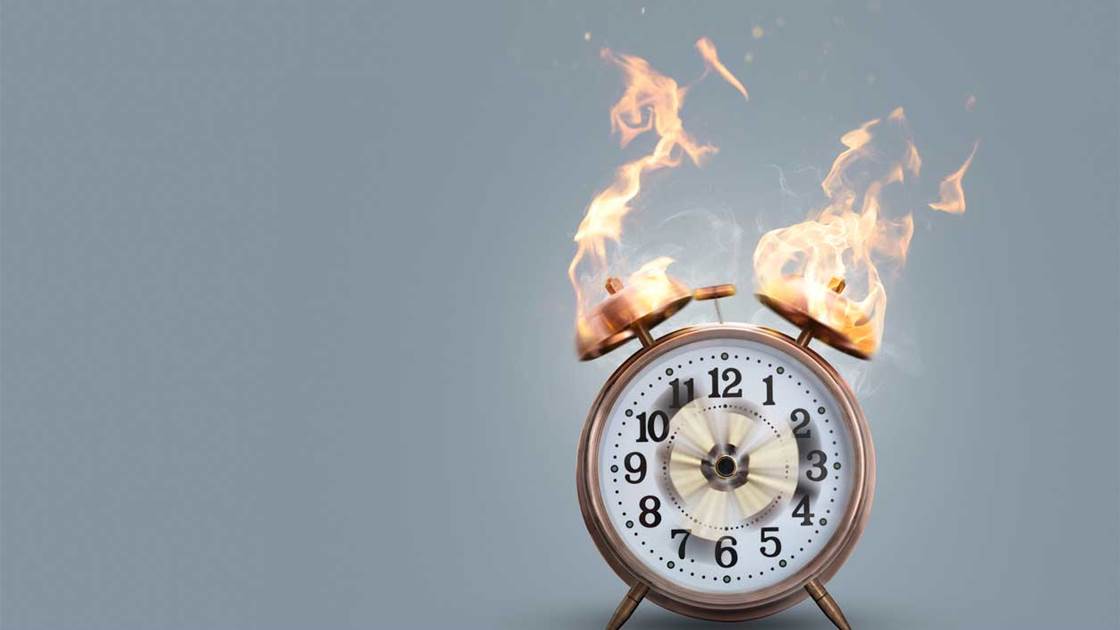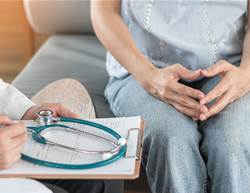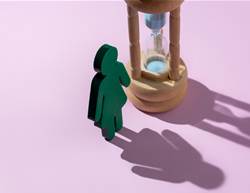In the years leading up to menopause, women’s hormones are inclined to roller-coaster, triggering a range of symptoms, including hot flushes. For around two thirds of women, hot flushes are part of this life stage, which is known as perimenopause, or the gradual shift into menopause, (which is officially declared when your body no longer produces viable eggs and your periods stop).
What causes hot flushes?
Scientists don’t know exactly what causes a hot flush to suddenly come on, but when it happens the blood vessels near the surface of the skin widen to cool you off, making you break out in a sweat. The name ‘hot flush’ also refers to the flush of colour that can rush to your face and neck during this episode.
So it may seem to make sense that when your periods stop, so too should hot flushes. We tend to think that menopause is defined by no longer having any of the female hormone oestrogen left. But in fact it is better defined as the body no longer having any viable eggs. And so our hormones can still be rollercoasting up and down after our periods stop, until our production of oestrogen eventually ends.
“We know some women will continue to have symptoms [like hot flushes] into their 60s and 70s,” explains Dr Fatima Khan, a menopause specialist at Epworth Hospital in Melbourne. “But on average, symptoms lasts around seven to eight years.”
The good news? Around one third of women will sail through menopause with no hot flushes or other symptoms of menopause at all. Another third will have mild symptoms and the final third will, unfortunately, suffer from severe symptoms.
What triggers hot flushes?
For women who do get hot flushes, it’s helpful to recognise the things that have been shown to make them worse and more frequent:
- Stress
- Caffeine
- Alcohol
- Spicy foods
- Tight clothing
- Heat
- Cigarette smoke
Changing up your habits can be one way to help minimse hot flushes.
How can we reduce the symptoms of menopause?
“I think you should look at being in menopause as a fantastic opportunity to optimise your health,” says Dr Khan.
To minimise menopausal symptoms and improve our health, Dr Khan says “Focus on the fundamental pillars of health.” Some ways to do that include:
1. Move each day
"Move more each day, I don't like calling it exercise. I want women to commit to daily movement, make it varied, to keep it fun and engaging. Because daily movement, even if it's little amount in what we call exercise snacks, (short bursts of five minutes or less) is actually shown to boost not only brain health, also heart health, and reduce your risk of diabetes and cholesterol and help with weight.
2. Focus on nourishing food
“Cut back on inflammatory, deep fried, highly processed food. Thinking Mediterranean diet, we've got lots of evidence for plant-based meals, lots of good fats (plentiful in oily fish and extra virgin olive oil).
3. Nurture your relationships
“Something we don't talk much about is improving quality relationships. A recent study that came out of Harvard is that the key to healthy ageing and happiness is the quality of relationships.
“Normally women become quite introverted during menopause because they've got these symptoms they feel no one's talking about it and there's a lot of shame and stigma. You might find you're not hanging out with your friends as much. But I think elevating that as a priority and saying, ‘Actually, I'm going to go have a coffee, have a bit of a whinge and then move on,’ can be helpful.
“When we have this collective shared experience of menopause, that in itself is really comforting. And this can motivate women to embrace healthy habits, and understand that everyone's experiencing this. And this helps women have a sense of control of their mind and body. And that can help you navigate it.”
Talk to your doctor for tailored advice on menopause treatments.
Listen to more of Dr Khan’s tips for managing symptoms of menopause on our podcast Thriving in Menopause.






.jpg&h=90&w=90&c=1&s=1)






